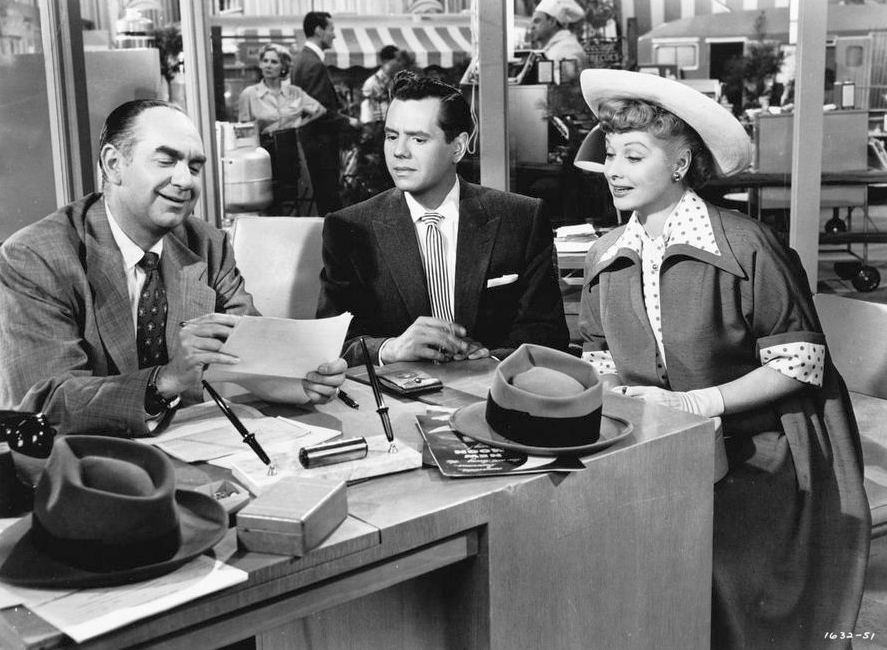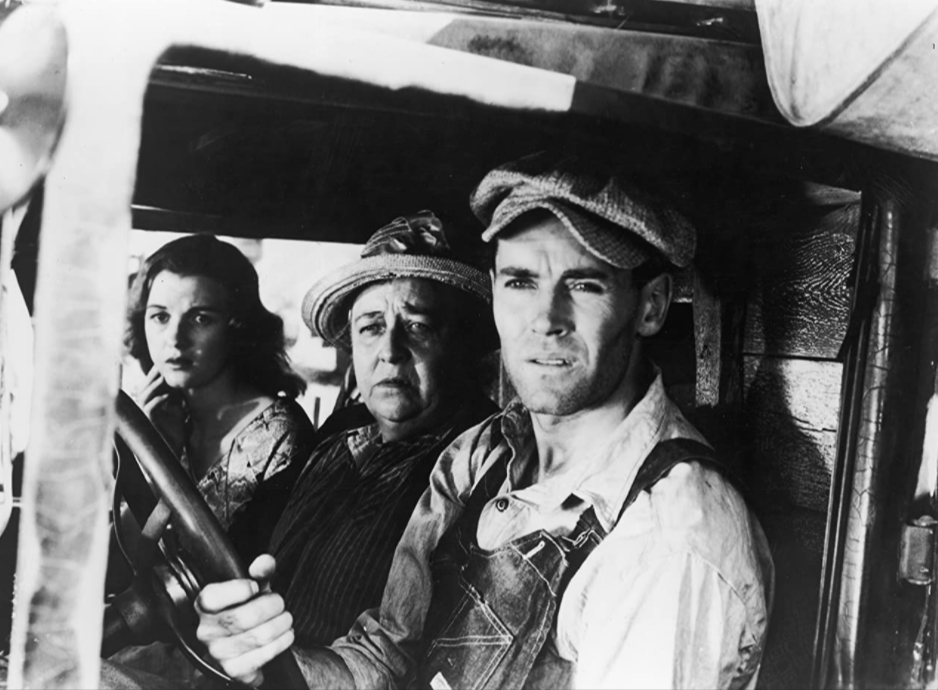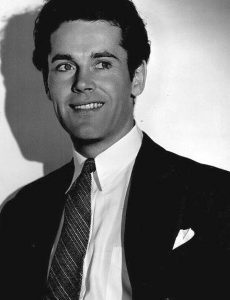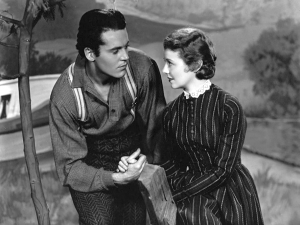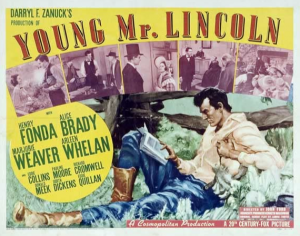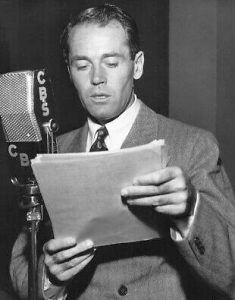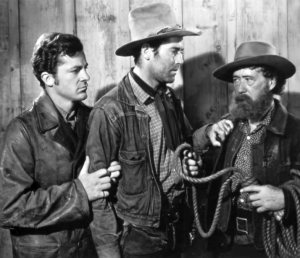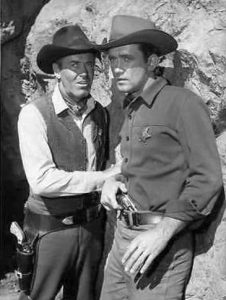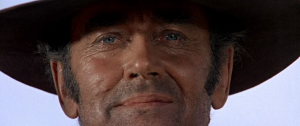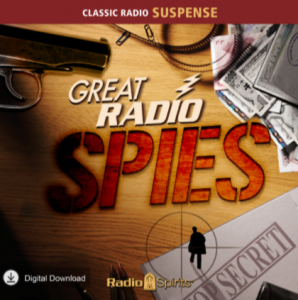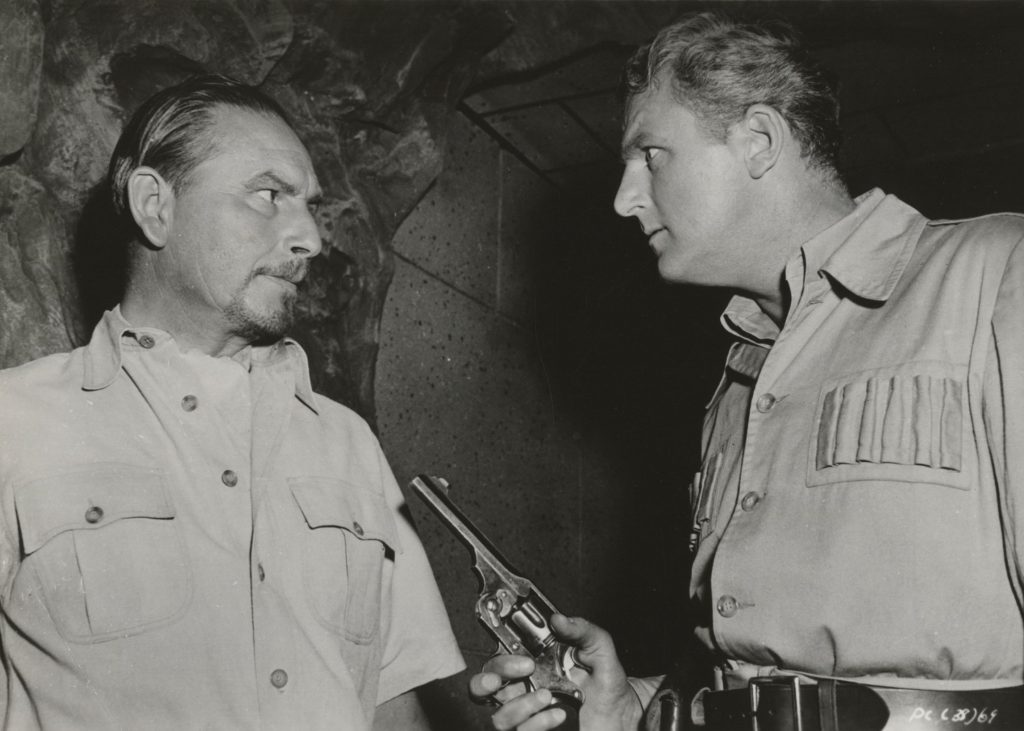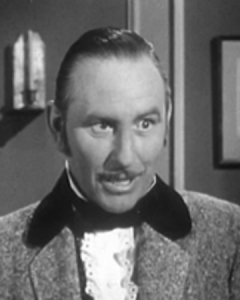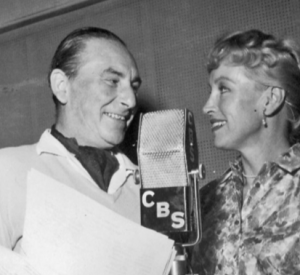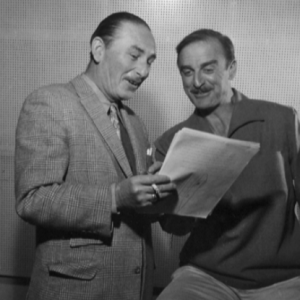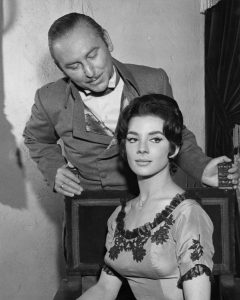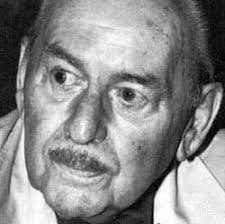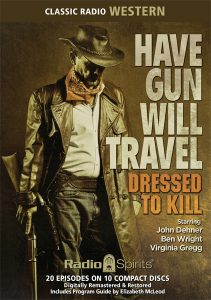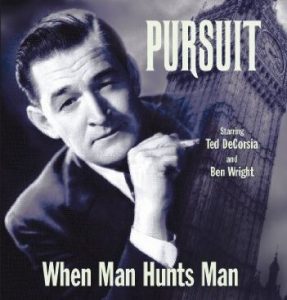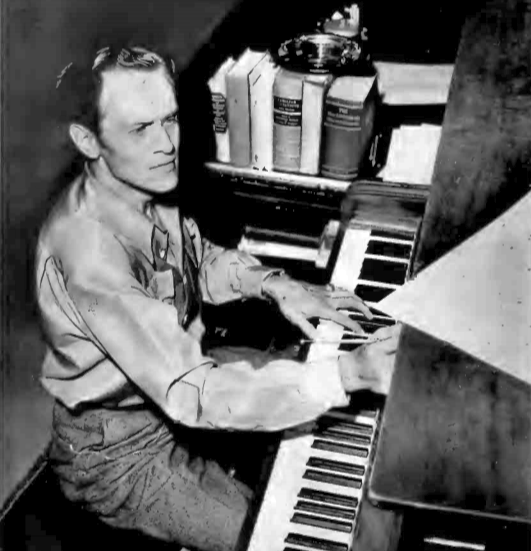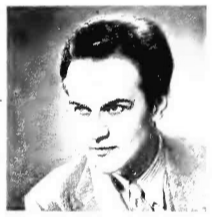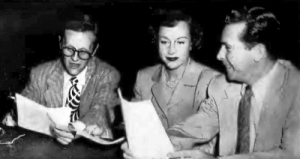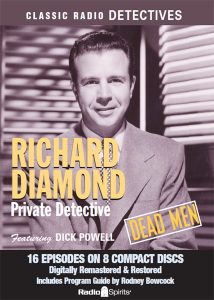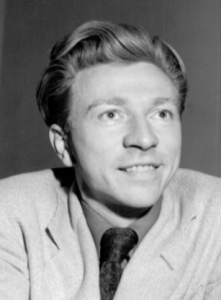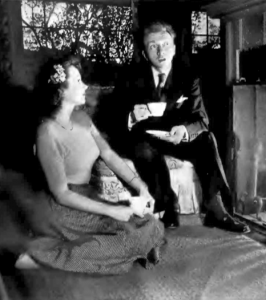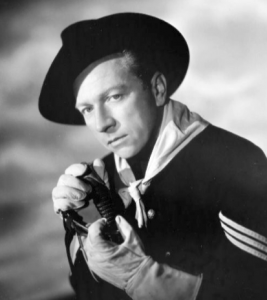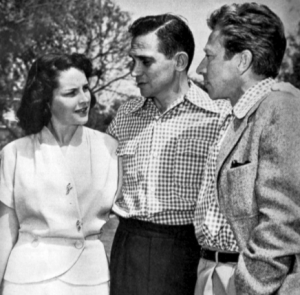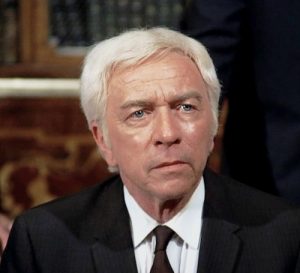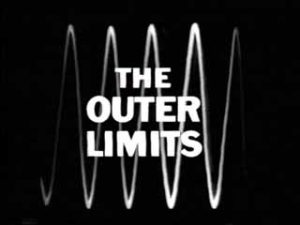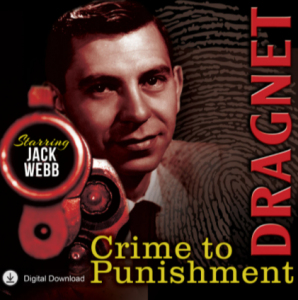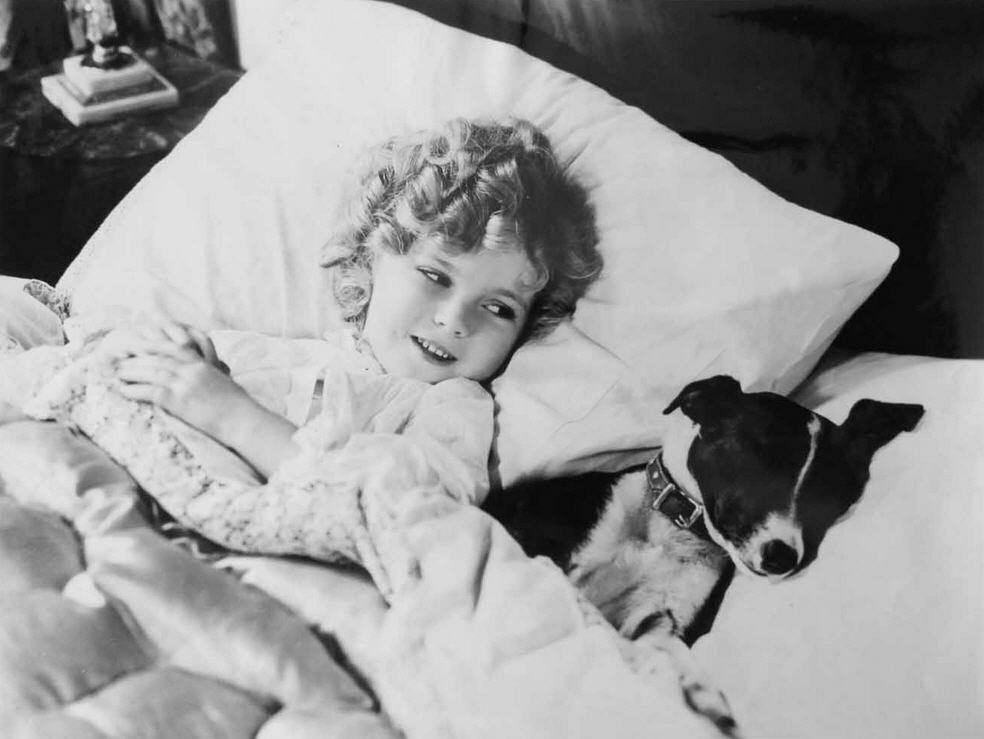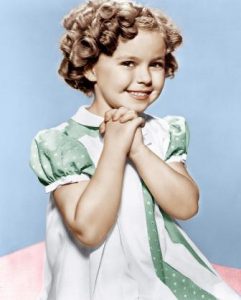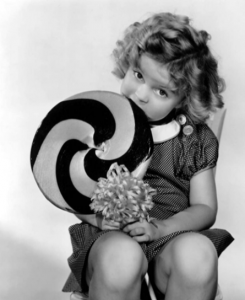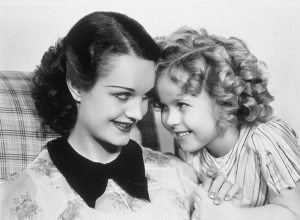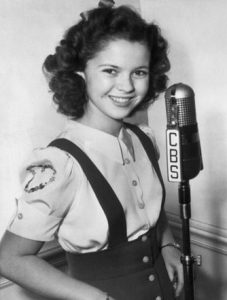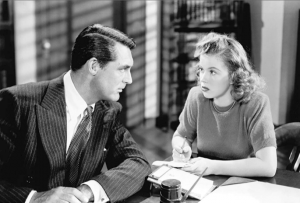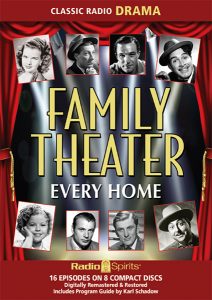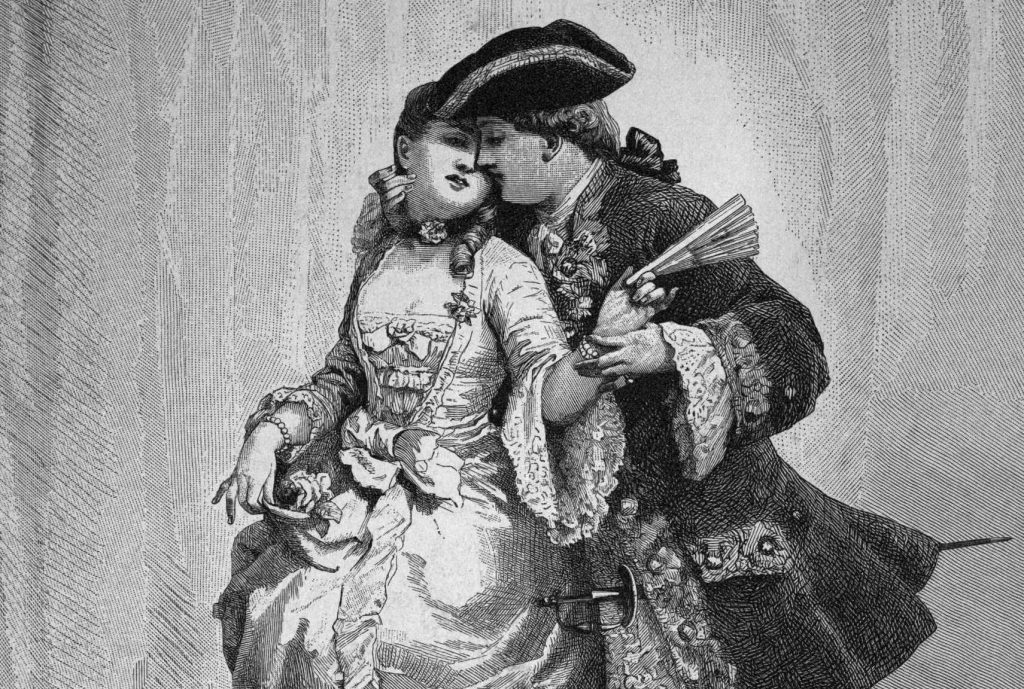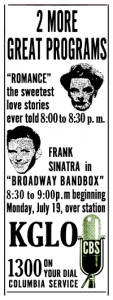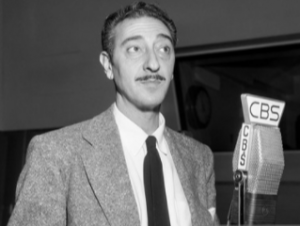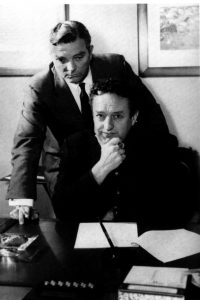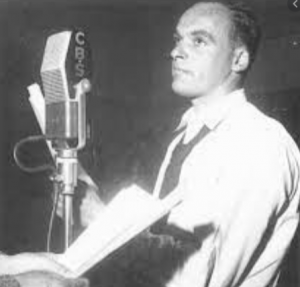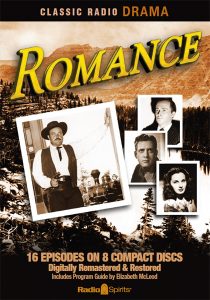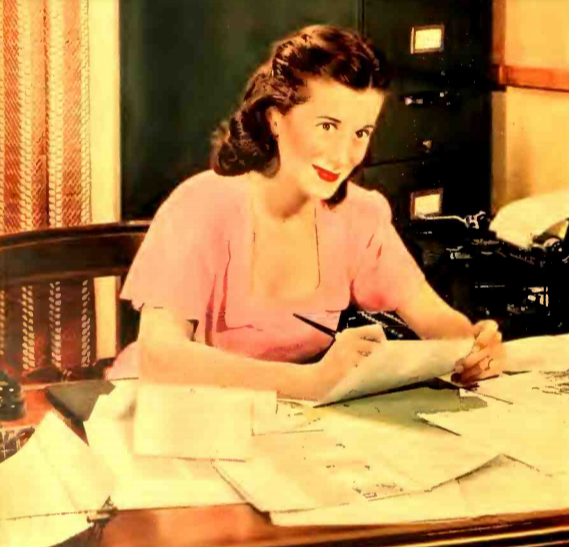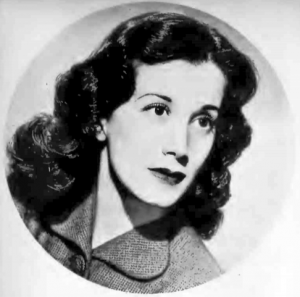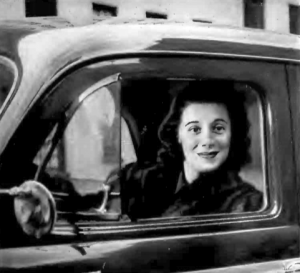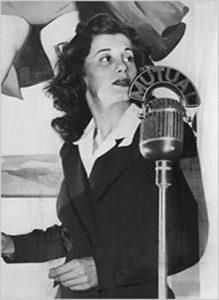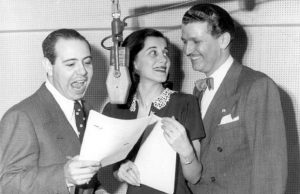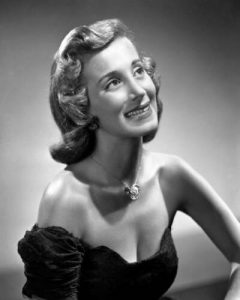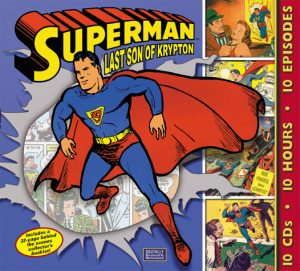Happy Birthday, Herb Vigran!
The man born Herbert (some sources spell it “Herburt”) Vigran in Cincinnati, Ohio on this date in 1910 would become one of show business’ most distinctive character actors. His easily recognized voice and facial features (particularly his bushy eyebrows) granted him the versatility to play individuals on both sides of the law (cops and gangsters) and flawlessly move back-and-forth from comedic roles to dramatic parts. Truth be told, Vigran’s acting resume is so lengthy and extensive it does him a disservice to boil everything down to a solitary blog post. Any aspiring biographer should really consider writing one about Herb, who chalked up over 350 film and TV appearances in his 50-year career (and he was every bit as busy on radio).
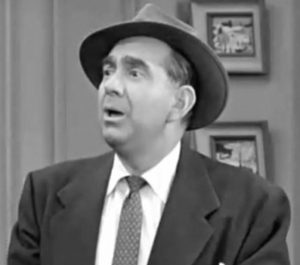 Although born in the Buckeye State, Indiana welcomed Herb as an adopted Hoosier sixteen years later when the Vigran family moved to Fort Wayne. He would end up graduating from the University of Indiana with a degree in law, and even passed the state bar exam. However, instead of hanging out his legal shingle, he took off for the Big Apple to become an actor. Herb landed small roles in Broadway productions of Achilles Had a Heel (1935), Cyrano de Bergerac (1936), and Having Wonderful Time (1937). Buoyed by his significant stage success, Vigran ventured out to Tinsel Town…despite having no prospects and no money.
Although born in the Buckeye State, Indiana welcomed Herb as an adopted Hoosier sixteen years later when the Vigran family moved to Fort Wayne. He would end up graduating from the University of Indiana with a degree in law, and even passed the state bar exam. However, instead of hanging out his legal shingle, he took off for the Big Apple to become an actor. Herb landed small roles in Broadway productions of Achilles Had a Heel (1935), Cyrano de Bergerac (1936), and Having Wonderful Time (1937). Buoyed by his significant stage success, Vigran ventured out to Tinsel Town…despite having no prospects and no money.
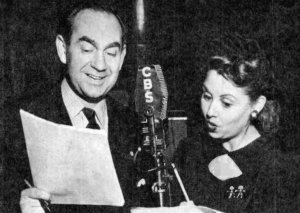 Herb Vigran’s agent got him an acting job on radio’s The Silver Theatre, and Vigran spent $5 to have that broadcast recorded. With that transcription in hand, Herb was able to get additional work on popular anthology programs like The Lux Radio Theatre and The Cavalcade of America. Vigran would later make the rounds on programs such as California Caravan, The Camel Screen Guild Theatre, The City, The Damon Runyon Theatre (as Harry the Horse), Dark Venture, The Eternal Light, Family Theatre, Favorite Story, The Ford Theatre, The Hallmark Hall of Fame, Hollywood Star Playhouse, Inheritance, NBC Presents: Short Story, On Stage, The Prudential Family Hour of Stars, The Railroad Hour, Screen Directors’ Playhouse, Stars in the Air, Suspense, The Whistler, Your Movietown Radio Theatre, and You Were There.
Herb Vigran’s agent got him an acting job on radio’s The Silver Theatre, and Vigran spent $5 to have that broadcast recorded. With that transcription in hand, Herb was able to get additional work on popular anthology programs like The Lux Radio Theatre and The Cavalcade of America. Vigran would later make the rounds on programs such as California Caravan, The Camel Screen Guild Theatre, The City, The Damon Runyon Theatre (as Harry the Horse), Dark Venture, The Eternal Light, Family Theatre, Favorite Story, The Ford Theatre, The Hallmark Hall of Fame, Hollywood Star Playhouse, Inheritance, NBC Presents: Short Story, On Stage, The Prudential Family Hour of Stars, The Railroad Hour, Screen Directors’ Playhouse, Stars in the Air, Suspense, The Whistler, Your Movietown Radio Theatre, and You Were There.
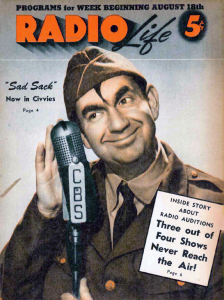 Herb also proved his worth as a second banana, yukking it up alongside such mirth makers as Abbott & Costello, Eddie Cantor, Jimmy Durante, Fibber McGee and Molly, Bob Hope, Dorothy Lamour, Lum and Abner, Phil Harris & Alice Faye, Jack Paar, and Alan Young. In addition, Herb logged guest appearances on many situation comedies: The Adventures of Maisie, The Adventures of Ozzie and Harriet, The Bickersons, Family Skeleton, Granby’s Green Acres, The Great Gildersleeve, The Halls of Ivy, The Life of Riley, Meet Mr. McNutley, Mr. and Mrs. Blandings, My Favorite Husband, Sara’s Private Caper, and That’s Rich.
Herb also proved his worth as a second banana, yukking it up alongside such mirth makers as Abbott & Costello, Eddie Cantor, Jimmy Durante, Fibber McGee and Molly, Bob Hope, Dorothy Lamour, Lum and Abner, Phil Harris & Alice Faye, Jack Paar, and Alan Young. In addition, Herb logged guest appearances on many situation comedies: The Adventures of Maisie, The Adventures of Ozzie and Harriet, The Bickersons, Family Skeleton, Granby’s Green Acres, The Great Gildersleeve, The Halls of Ivy, The Life of Riley, Meet Mr. McNutley, Mr. and Mrs. Blandings, My Favorite Husband, Sara’s Private Caper, and That’s Rich.
Three of Herb Vigran’s most memorable radio assignments were on comedy programs. The first was his only starring gig: from June 12 to September 4, 1946 Vigran played The Sad Sack, cartoonist George Baker’s famed luckless G.I. creation. The radio version featured Vigran-as-Sack mustered out of the service (coincidentally, Herb had just got out as well) and attempting to adjust to civilian life with the help of his chiseling roommate Chester Fenwick (Jim Backus) and girlfriend Lucy Twitchell (Sandra Gould). In the fall of 1949, Herb could be heard as next-door neighbor Hector Smith on the Robert Young series Father Knows Best with Eleanor Audley as wife Elizabeth and Sam Edwards as their son Billy.
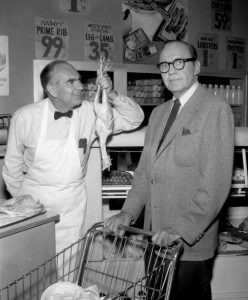 Perhaps the one radio job that ensured Herb Vigran would be standing in front of a microphone week after week was his joining the “stock company” of the medium’s most popular comedy broadcast, The Jack Benny Program. Herb’s “Everyman” quality allowed him to play any number of characters on Jack’s show. An excellent example is a November 15, 1953 episode in which Vigran, as “Mac the Doorman,” explains to the comedian that while he was assigned to watch the doors at the radio studio he’s been transferred to “Television City.”
Perhaps the one radio job that ensured Herb Vigran would be standing in front of a microphone week after week was his joining the “stock company” of the medium’s most popular comedy broadcast, The Jack Benny Program. Herb’s “Everyman” quality allowed him to play any number of characters on Jack’s show. An excellent example is a November 15, 1953 episode in which Vigran, as “Mac the Doorman,” explains to the comedian that while he was assigned to watch the doors at the radio studio he’s been transferred to “Television City.”
“Mr. Benny,” Mac asks the star, “how long ago was it that you held the ‘I Can’t Stand Jack Benny’ contest?”
Jack is somewhat taken aback. “Well, we finished that eight years ago,” Benny explains to the doorman.
“Well, you ought to make an announcement on your program,” Mac responds. “We keep getting about 500 letters a week!”
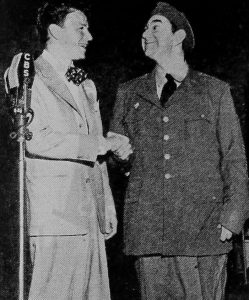 Rounding out Herb Vigran’s radio C.V. are favorites like The Adventures of Philip Marlowe, The Adventures of the Lone Wolf, The Adventures of the Saint, Barrie Craig, Confidential Investigator, Bold Venture, Box Thirteen, Broadway’s My Beat, The Casebook of Gregory Hood, The Cisco Kid, Dragnet, Fort Laramie, The Green Lama, Gunsmoke, Have Gun — Will Travel, I Was a Communist for the FBI, Jeff Regan, Investigator, Let George Do It, Luke Slaughter of Tombstone, The New Adventures of Nero Wolfe, Presenting Charles Boyer, Rocky Fortune, The Roy Rogers Show, The Six-Shooter, Somebody Knows, Tales of the Texas Rangers, Wild Bill Hickok, and Yours Truly, Johnny Dollar. You know the old saying (that I just made up): “You can take the boy out of radio…but you can’t take radio out of the boy.” Herb continued to perform on shows that attempted to revive radio drama, including The Hollywood Radio Theatre and The Sears Radio Theatre.
Rounding out Herb Vigran’s radio C.V. are favorites like The Adventures of Philip Marlowe, The Adventures of the Lone Wolf, The Adventures of the Saint, Barrie Craig, Confidential Investigator, Bold Venture, Box Thirteen, Broadway’s My Beat, The Casebook of Gregory Hood, The Cisco Kid, Dragnet, Fort Laramie, The Green Lama, Gunsmoke, Have Gun — Will Travel, I Was a Communist for the FBI, Jeff Regan, Investigator, Let George Do It, Luke Slaughter of Tombstone, The New Adventures of Nero Wolfe, Presenting Charles Boyer, Rocky Fortune, The Roy Rogers Show, The Six-Shooter, Somebody Knows, Tales of the Texas Rangers, Wild Bill Hickok, and Yours Truly, Johnny Dollar. You know the old saying (that I just made up): “You can take the boy out of radio…but you can’t take radio out of the boy.” Herb continued to perform on shows that attempted to revive radio drama, including The Hollywood Radio Theatre and The Sears Radio Theatre.
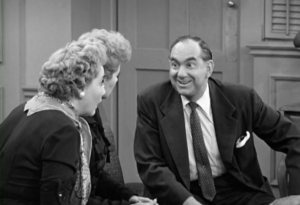 Herb Vigran appeared in a multitude of motion picture shorts and features, often uncredited but never failing to make an impression. Among his early credited films are It All Came True (1940), Murder by Invitation (1941), Reg’lar Fellers (1941), and Secrets of a Co-Ed (1942). He’s the reporter interviewing Henri Verdoux (Charles Chaplin) on his way to the gallows in Monsieur Verdoux (1947); the police lieutenant in Bedtime for Bonzo (1951); and a nightclub manager in White Christmas (1954). Herb’s also the salesman who sells The Long, Long Trailer (1954) to Tacy and Nicky Collini (Lucille Ball and Desi Arnaz).
Herb Vigran appeared in a multitude of motion picture shorts and features, often uncredited but never failing to make an impression. Among his early credited films are It All Came True (1940), Murder by Invitation (1941), Reg’lar Fellers (1941), and Secrets of a Co-Ed (1942). He’s the reporter interviewing Henri Verdoux (Charles Chaplin) on his way to the gallows in Monsieur Verdoux (1947); the police lieutenant in Bedtime for Bonzo (1951); and a nightclub manager in White Christmas (1954). Herb’s also the salesman who sells The Long, Long Trailer (1954) to Tacy and Nicky Collini (Lucille Ball and Desi Arnaz).
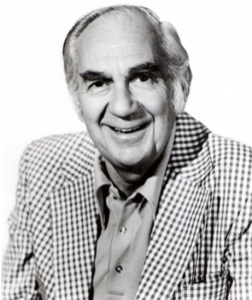 Herb Vigran had a long working association with Lucille Ball—he made multiple appearances on I Love Lucy and later on The Lucy Show. Herb was also a familiar presence on Dragnet, on both the 1951-59 and 1967-70 versions, as well as the 1954 feature film. (Vigran plays a desk clerk in both versions of “The Big Little Jesus,” the series’ celebrated Yuletide offering.) Among the many TV shows that Herb guested on before his passing in 1986 at the age of 76: The Adventures of Superman, Bachelor Father, Bewitched, Bonanza, Burns and Allen, The Danny Thomas Show, The Dick Van Dyke Show, The Ed Wynn Show (as Ernest Hinshaw), The Flintstones, Gomer Pyle: USMC, Gunsmoke (as Judge Brooker), I Married Joan, The Jack Benny Program, Maverick, McHale’s Navy, My Little Margie, Our Miss Brooks, and Perry Mason.
Herb Vigran had a long working association with Lucille Ball—he made multiple appearances on I Love Lucy and later on The Lucy Show. Herb was also a familiar presence on Dragnet, on both the 1951-59 and 1967-70 versions, as well as the 1954 feature film. (Vigran plays a desk clerk in both versions of “The Big Little Jesus,” the series’ celebrated Yuletide offering.) Among the many TV shows that Herb guested on before his passing in 1986 at the age of 76: The Adventures of Superman, Bachelor Father, Bewitched, Bonanza, Burns and Allen, The Danny Thomas Show, The Dick Van Dyke Show, The Ed Wynn Show (as Ernest Hinshaw), The Flintstones, Gomer Pyle: USMC, Gunsmoke (as Judge Brooker), I Married Joan, The Jack Benny Program, Maverick, McHale’s Navy, My Little Margie, Our Miss Brooks, and Perry Mason.
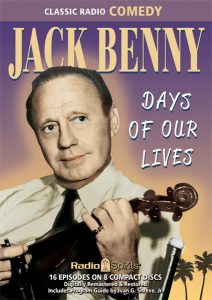 That Jack Benny Program broadcast I mentioned a few paragraphs up is available for purchase on the Radio Spirits collection The Fabulous ‘50s, as are several other Benny sets featuring today’s birthday celebrant: Be Our Guest, Days of Our Lives, The Fabulous ‘40s, Jack Benny & Friends, and Tough Luck! In addition, you’ll find plenty of Herb on compilations of The Life of Riley (Blue Collar Blues, Lovable Lug), The Six-Shooter (Gray Steel, Special Edition), and Yours Truly, Johnny Dollar (Expense Account Submitted, Fabulous Freelance, Fatal Matters, Wayward Matters). Rounding out our Vigran CD compendiums are The Adventures of Philip Marlowe, The Adventures of the Saint: The Saint is Heard, Broadway’s My Beat: The Loneliest Mile, Christmas on the Air, Damon Runyon: Here is Broadway, Dark Venture, Dragnet: Get ‘Em, Family Theatre: Every Home, Father Knows Best: Maple Street, Fibber McGee & Molly: Selling Kisses, Fort Laramie: Volume Two, The Halls of Ivy: School Days, Have Gun – Will Travel: Dressed to Kill, Jeff Regan, Investigator: Stand By For Mystery, The New Adventures of Nero Wolfe: Parties for Death, The Phil Harris-Alice Faye Show: Reminiscing, and Somebody Knows.
That Jack Benny Program broadcast I mentioned a few paragraphs up is available for purchase on the Radio Spirits collection The Fabulous ‘50s, as are several other Benny sets featuring today’s birthday celebrant: Be Our Guest, Days of Our Lives, The Fabulous ‘40s, Jack Benny & Friends, and Tough Luck! In addition, you’ll find plenty of Herb on compilations of The Life of Riley (Blue Collar Blues, Lovable Lug), The Six-Shooter (Gray Steel, Special Edition), and Yours Truly, Johnny Dollar (Expense Account Submitted, Fabulous Freelance, Fatal Matters, Wayward Matters). Rounding out our Vigran CD compendiums are The Adventures of Philip Marlowe, The Adventures of the Saint: The Saint is Heard, Broadway’s My Beat: The Loneliest Mile, Christmas on the Air, Damon Runyon: Here is Broadway, Dark Venture, Dragnet: Get ‘Em, Family Theatre: Every Home, Father Knows Best: Maple Street, Fibber McGee & Molly: Selling Kisses, Fort Laramie: Volume Two, The Halls of Ivy: School Days, Have Gun – Will Travel: Dressed to Kill, Jeff Regan, Investigator: Stand By For Mystery, The New Adventures of Nero Wolfe: Parties for Death, The Phil Harris-Alice Faye Show: Reminiscing, and Somebody Knows.
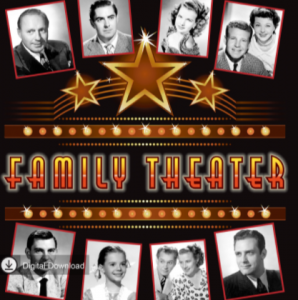 You thought I was kidding about Herb Vigran being a busy man in the aural medium, didn’t you? Well, in Radio Spirits’ digital downloads store there’s plenty more of Herb with Barrie Craig: Confidential Investigator, Broadway’s My Beat: Great White Way, Family Theatre, The Halls of Ivy, Happy Halloween, Let George Do It (Cry Uncle, Enter Mr. Valentine), The Phil Harris-Alice Faye Show (Family Values, Hotel Harris), Rocky Fortune, and Yours Truly, Johnny Dollar: Phantom Chases. If your cart isn’t too full, see if you can make some room for more Jack Benny—International, No Place Like Home, Oh, Rochester!, On the Town, and Picture Parodies. Happy birthday, Herb!
You thought I was kidding about Herb Vigran being a busy man in the aural medium, didn’t you? Well, in Radio Spirits’ digital downloads store there’s plenty more of Herb with Barrie Craig: Confidential Investigator, Broadway’s My Beat: Great White Way, Family Theatre, The Halls of Ivy, Happy Halloween, Let George Do It (Cry Uncle, Enter Mr. Valentine), The Phil Harris-Alice Faye Show (Family Values, Hotel Harris), Rocky Fortune, and Yours Truly, Johnny Dollar: Phantom Chases. If your cart isn’t too full, see if you can make some room for more Jack Benny—International, No Place Like Home, Oh, Rochester!, On the Town, and Picture Parodies. Happy birthday, Herb!

